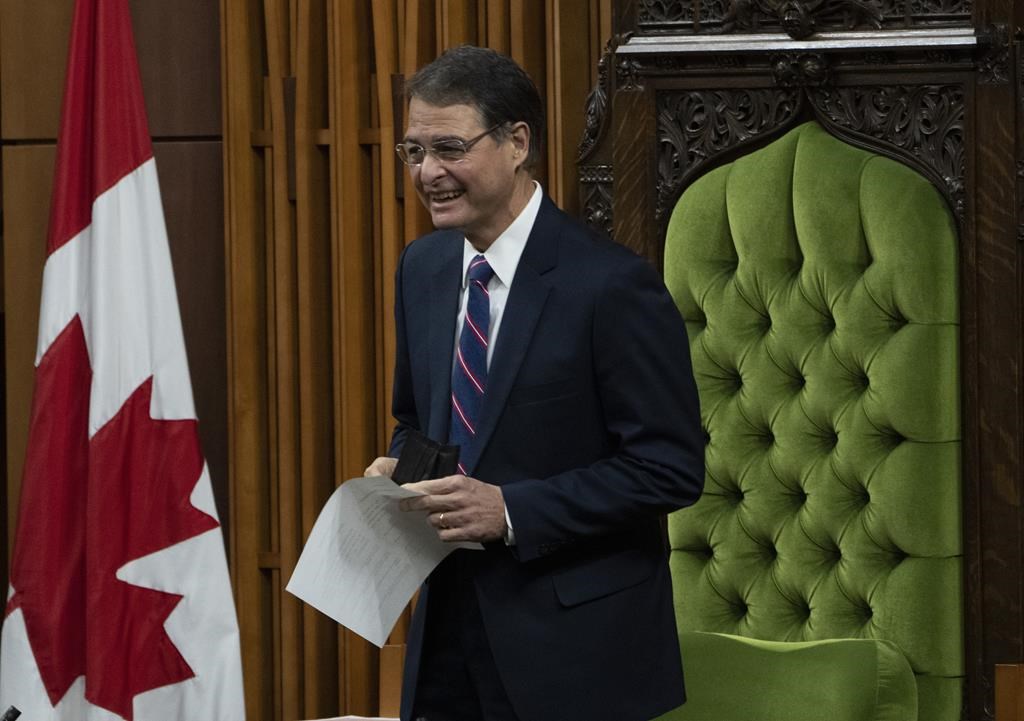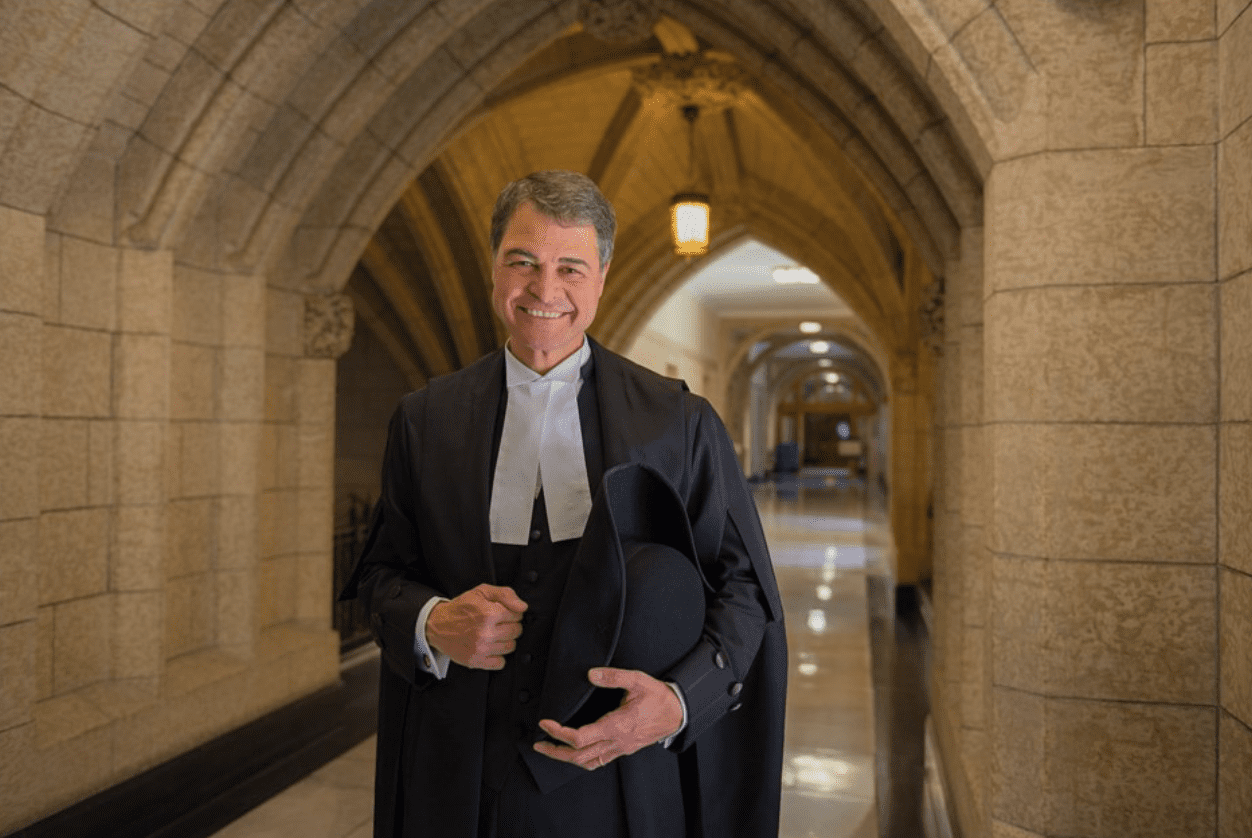Canada and the US utilize different political systems. The former uses the Westminster model for parliamentary government, which includes an elected House of Commons and (mostly) unelected Senate. The latter uses a presidential system and constitutional federal republic, which includes elected assemblies in the House of Representatives and Senate.
The two countries do have a few political similarities. Both elect a Speaker of the House, for instance. The role tends to be of a more independent nature in Canada, and more ideologically partisan in the US. Nevertheless, this individual is supposed to manage the day-to-day proceedings of the Canadian Parliament and US Congress, respectively.
In a strange quirk of history, the House Speaker role in both countries has simultaneously experienced an unusually high amount of political turmoil.
Anthony Rota, a Liberal MP who had served as Canada’s Speaker of the House for nearly four years, invited 98-year-old Yaroslav Hunka to be honoured during Ukrainian President Volodymyr Zelensky’s Sept. 22 visit. Rota described Hunka, one of his constituents in North Bay, as a “Ukrainian Canadian war veteran from the Second World War who fought for Ukrainian independence against the Russians” as well as “a Ukrainian hero, a Canadian hero, and we thank him for all his service.”
The war veteran received a standing ovation in Parliament, and plenty of smiles on both sides of the House. That is, until people started to connect the dots and realized that a huge mistake had been made. Hunka had served in the First Ukrainian Division during the Second World War, which was also known as the Waffen-SS Galicia Division and SS 14th Waffen Division. This division was a voluntary unit commanded by Nazi Germany that’s been accused of murdering Jewish and Polish civilians.
An actual Nazi had been honoured in the House of Commons. Rota was humiliated and issued an apology within days. Prime Minister Justin Trudeau and the Liberals were embarrassed by the actions of the Speaker and a caucus colleague. The opposition parties, who were also on their feet that day, pointed blame squarely at Rota, Trudeau and the Liberals and the clear lack of a proper vetting process.
Rota resigned as House Speaker on Sept. 26. While the Hunka invitation was unintentional, it was a massive error in judgment that couldn’t be swept under the rug. There was no other alternative but to step down.
This led to Bloc Quebecois MP Louis Plamondon taking over the role on an interim basis. Plamondon, who was elected as a Progressive Conservative in 1984, became the first-ever Speaker from the BQ, a separatist party. While uneventful, it was a strange moment in Canadian politics and the shortest-ever tenure of a House Speaker.
This led to the Oct. 3 vote for a new Speaker. Greg Fergus, a Liberal MP and the acknowledged front-runner, defeated three fellow Liberals (Sean Casey, Alexandra Mendès and Peter Schiefke), Conservative MP Chris d’Entremont, NDP MP Carol Hughes and Green Party leader Elizabeth May in a secret ballot vote. Stéphane Lauzon, a Liberal MP who had also put his name forward, withdrew before the voting started.
Liberal MPs seemed pleased with this decision. Fergus became Canada’s first Black House Speaker, and they felt the political turmoil involving this role would end.
Then again, maybe it won’t.
Fergus’s skills as a politician are highly suspect. He got into some hot water during a Jan. 25, 2021 appearance on CTV’s Power Play. After pointing out that more COVID-19 vaccine approvals were needed to meet a Sept. 2021 target, he confidently mentioned two vaccines, AstraZeneca and Johnson & Johnson, that hadn’t been approved in Canada at that point. CTV got in touch with then-Liberal Procurement Minister Anita Anand, who confirmed her government’s position hadn’t changed. Fergus issued an apology.
Fergus was also found guilty of an ethics violation this February. He broke the Conflict of Interest Act as Trudeau’s parliamentary secretary after writing a letter of support to the CRTC for a television channel that had applied for mandatory carriage. Parliamentary rules forbid ministers and parliamentary secretaries from writing letters of support. This is something that only MPs can do.
A mediocre politician with an ethics violation is Canada’s new House Speaker. The bar has been lowered yet again.
Meanwhile, Kevin McCarthy, who was elected US House Speaker on Jan. 7 after 15 agonizing ballots, the fifth longest in American history, became the first person in this role to be removed.
The right-leaning Freedom Caucus within the GOP was furious with McCarthy’s decision to make a deal with House Democrats to pass a funding resolution that would prevent a government shutdown. “We’re going to be adults in the room. And we’re going to keep government open,” McCarthy said. “If somebody wants to remove me because I want to be the adult in the room, go ahead and try.”
This was more than enough motivation for Matt Gaetz. The controversial Republican House Representative filed a motion to vacate on Oct. 2. While it initially seemed unlikely to succeed, the slim four-seat Republican majority that’s basically propped up the Freedom Caucus withered away. Eight Republicans, including Gaetz, voted for the no-confidence motion and were joined by the entire Democratic caucus.
The final vote was 216-210 to remove McCarthy. The Speaker’s seat was declared vacant. Republican Patrick McHenry was appointed Speaker pro tempore, and McCarthy unsurprisingly confirmed he wouldn’t run again.
While McCarthy’s leadership was far from flawless, it had been more than adequate. He really didn’t deserve this fate. Gaetz and his political allies have therefore unnecessarily thrown the House into turmoil – and hurt their own political brand in the process. With a looming government shutdown in roughly 40 days, the Republicans need to somehow get behind a new candidate for Speaker – and fast.
Who would have ever believed the House Speaker’s role in Canada and the US would have travelled on the same messy path, albeit for separate reasons? For all of our political differences, one similarity has stood out. Plus ça change, plus c’est la même chose.











